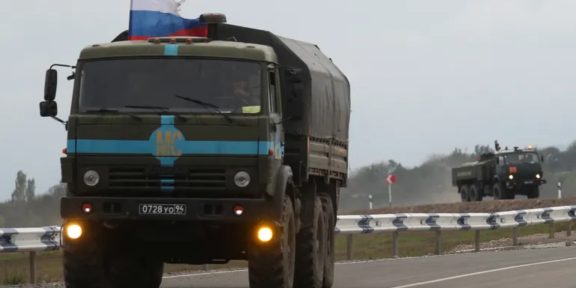«Խաչմերուկ» հաղորդաշարի անդրանիկ թողարկմանը քաղաքագետ Բենիամին Պողոսյանը գնահատում է Ղարաբաղյան խնդրի կարգավորման ներկա փուլը և հեռանկարները, ապա դրանք քննարկում Մարդկային զարգացման միջազգային կենտրոնի հիմնադիր Թևան Պողոսյանի հետ։
***
Nagorno Karabakh Conflict. Current Stage and Prospects of Settlement
Benyamin Poghosyan
Nagorno Karabakh conflict is probably the most significant and the most sensitive national security issue Armenia faces. It also has the potential to strongly impact domestic politics and has always been used as a tool in political infighting. The recent developments in the negotiation process – the several meetings between Armenian and Azerbaijani foreign ministers in 2019, the marathon 11 hours talks held on January 29-30, 2020 and the leaders’ possible meeting in the margins of upcoming Munich security conference this February have created mixed atmosphere of hope and concern.
What are the main topics of negotiations; are sides closer to reach some agreement on the so called basic principles which may result in change of the current line of contact? These are the questions hotly debated within Armenian society. However, if one wants to have an unbiased and sober assessment, several key factors should be identified.
– All suggestions presented by the OSCE Minsk group envisage the return of some territories under Nagorno Karabakh control to Azerbaijan. Most probably any new offers which may be presented in foreseeable future will have the same requirement,
– Armenia can not afford to leave the negotiations arguing that any change of line of contact is not acceptable and emphasizing that it will return to the negotiation table only if suggested draft document envisages the recognition of Nagorno Karabakh independence within its current borders,
– Participation in negotiations does not necessarily mean the signature of agreement and or actual change of borders,
– Given the hardened position of societies in Armenia and Karabakh and the shrinking power gap between Armenia and Azerbaijan due to the economic downturn in Azerbaijan as a result of declining oil exports and prices, it will be much more difficult to convince the society to make concessions. The reasonable question may arise – if Armenia and Karabakh were able to resist Azerbaijani pressure while the balance of power was much more favorable for Azerbaijan due to the oil boom, why Yerevan and Stepanakert are not able to resist now, when the gap between Armenia and Azerbaijan is shrinking?
– The international mediators have neither will nor capacity to jointly impose any solution on conflict sides. Meanwhile, no one is interested in the resumption of large scale hostilities with possible spillover effects. Thus, they will seek to manage the conflict and avoid the war. In short/medium term perspective (3-5 years) the realistic scenario is the continuation of status quo with outburst of occasional violence on the line of contact and Armenia – Azerbaijan international border.
***
***
Civilnet thanks the Friedrich Ebert Stiftung (FES) for their cooperation and support.














